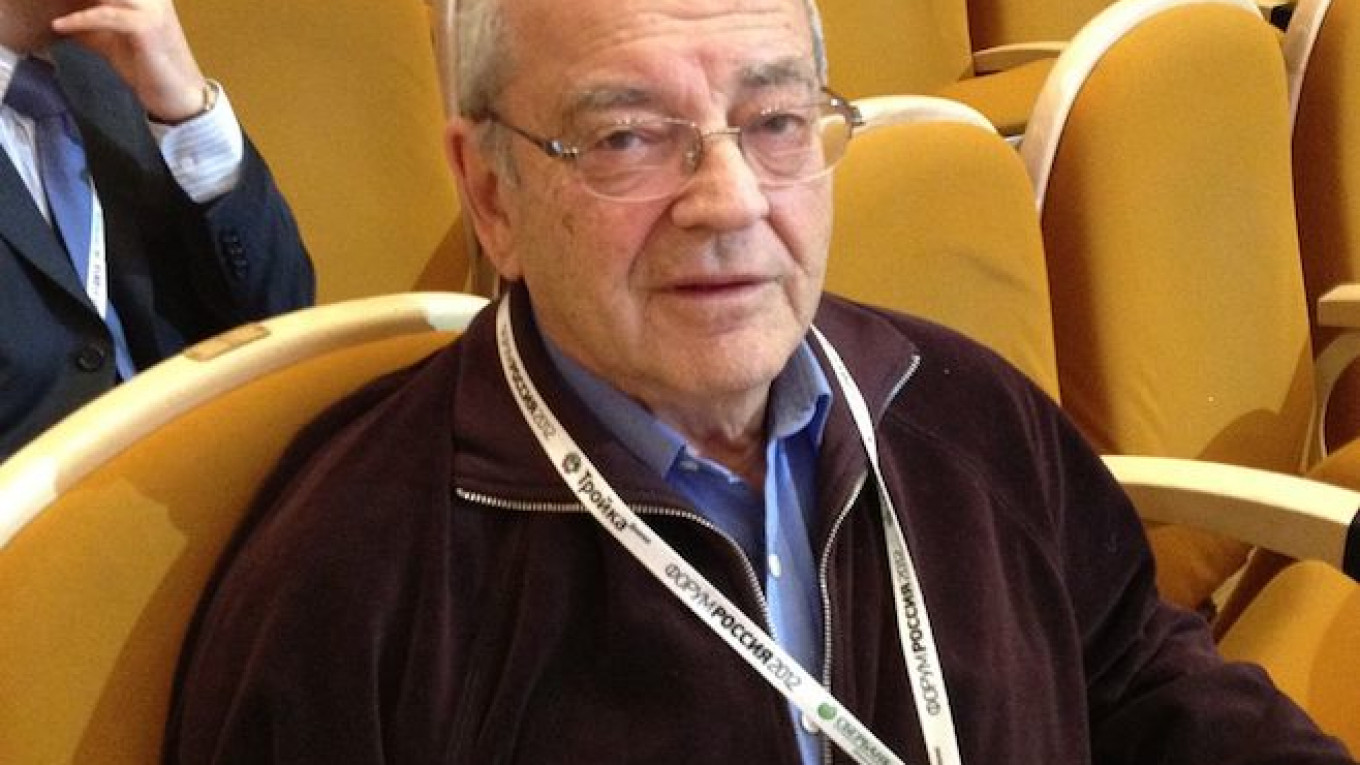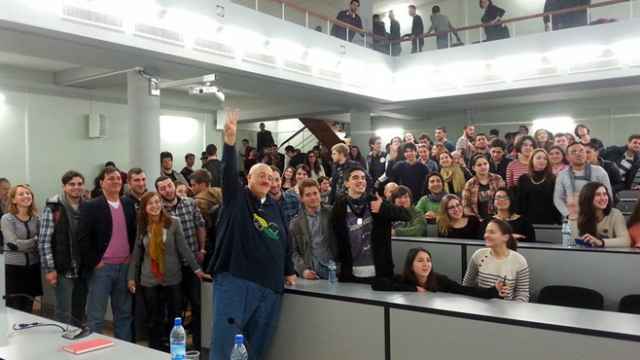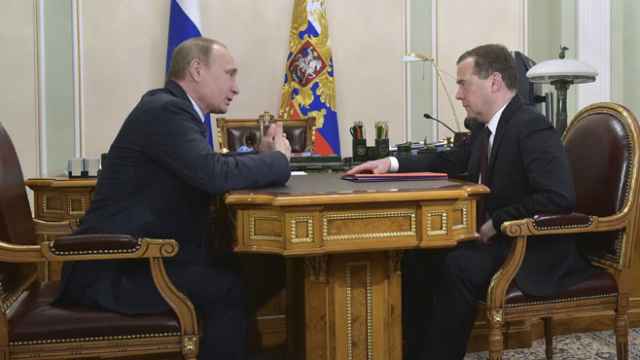These are dark days for Russian science and education because the Dynasty Foundation has threatened to close its doors in response to the authorities branding it a "foreign agent." The tragic story of that organization's demise is just one more episode in the degradation of Russian government and the deterioration of Russian society in recent years.
It might seem almost insignificant against the backdrop of the far weightier problems of the ongoing war in Ukraine, the murder of Boris Nemtsov and the authorities' crackdown on civil society, but Dynasty's closing is the worst thing to happen to science education in Russia in recent years.
Dynasty has done more than anything else in the past decade to advance modern science in this country — even more than the creation of new universities and science departments and the partial reforms made to scientific research funding.
In the 21st century, science requires several things that were not so important before.
These include the rapid concentration of financial resources in specific areas, the freedom to choose the most appropriate project and research group from among the huge range of options available and the courage to dispassionately halt whichever lines of research clearly hold no promise.
This column is no place to list specific Dynasty programs, but suffice it to say that each was valuable not only in itself, but also for demonstrating that such a foundation is not only necessary, but also possible.
And, although a private foundation cannot fund all the scientific research in Russia, it can provide an example to officials of how to manage science in the 21st century.
This is a good time to ask: What did Dynasty founder Dmitry Zimin manage to accomplish, and what does he leave undone?
Dynasty managed to create a working system for selecting and funding purely scientific research as well as more "popular" projects. It set an example of how such a system should and can work.
Detractors might argue that it was too small, that it funded only a few projects.
However, not a single Forbes 500 company has even done that much. Perhaps it is time one of them tried.
Only after someone else matches this accomplishment, or less likely, surpasses it, can they belittle Zimin's achievement.
Zimin has done more to earn himself a place in the history books than have the last two prime ministers, much less various government ministers and the rectors of major universities in Russia.
What did Dynasty leave undone — that is, if it does in fact close its doors?
It did not manage to create a self-sustaining structure that would continue operating even without its founder. Zimin has yet to do what John D. Rockefeller or Leland Stanford did in founding universities, or what Andrew Carnegie and John D. MacArthur did in bequeathing money to fund research.
In fact, nobody has done anything like that in the 1,000 years of Russian history.
To even attempt it in today's society is an act of heroism. To struggle for it as Zimin has is a true feat.
Konstantin Sonin, a columnist for Vedomosti, is a professor of economics at the Higher School of Economics in Moscow and was a finalist for the Dynasty Foundation's Enlightener prize in 2012.
A Message from The Moscow Times:
Dear readers,
We are facing unprecedented challenges. Russia's Prosecutor General's Office has designated The Moscow Times as an "undesirable" organization, criminalizing our work and putting our staff at risk of prosecution. This follows our earlier unjust labeling as a "foreign agent."
These actions are direct attempts to silence independent journalism in Russia. The authorities claim our work "discredits the decisions of the Russian leadership." We see things differently: we strive to provide accurate, unbiased reporting on Russia.
We, the journalists of The Moscow Times, refuse to be silenced. But to continue our work, we need your help.
Your support, no matter how small, makes a world of difference. If you can, please support us monthly starting from just $2. It's quick to set up, and every contribution makes a significant impact.
By supporting The Moscow Times, you're defending open, independent journalism in the face of repression. Thank you for standing with us.
Remind me later.






